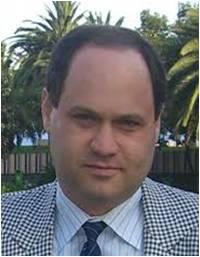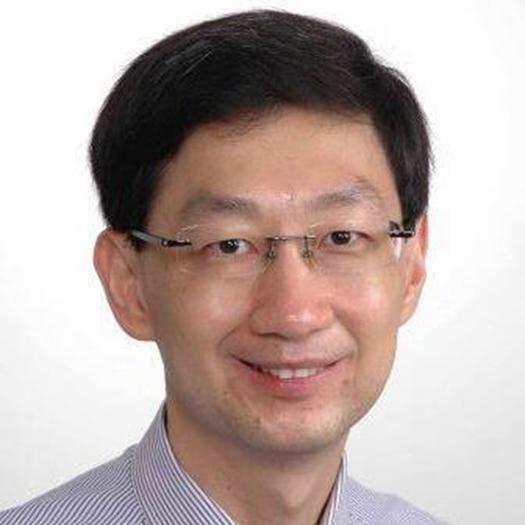2017 International Conference on Intelligent Computing
August 7-10,2017
Liverpool,UK
(http://www.ic-icc.cn/2017/index.htm)
 |
Plamen Angelov IEEE Fellow Editor-in-Chief of Evolving Systems Journal INNS Board Member, VP for Conference of INNS Distinguished Lecturer IEEE, Lancaster University, UK |
 |
Péter Érdi Editor-in-Chief of Cognitive Systems Research Journal INNS Board Member VP for Membership of INNS Kalamazoo College, USA |
 |
Yaochu Jin IEEE Fellow Editor-in-Chief of the IEEE Transactions on Cognitive and Developmental Systems and Complex & Intelligent Systems University of Surrey, Guildford, UK |
 |
Kay Chen Tan IEEE Fellow Editor-in-Chief of IEEE Transactions on Evolutionary Computation IEEE Distinguished Lecturer City University of Hong Kong, Hong Kong |
Learning Autonomously from Data Streams through Empirical Data Analytics
Plamen Angelov
IEEE Fellow
Editor-in-Chief of Evolving Systems Journal
INNS Board Member, VP for Conference of INNS
Distinguished Lecturer IEEE, Lancaster University, UK
Email: p.angelov:Lancaster.ac.uk
Personal website: http://www.lancaster.ac.uk/staff/angelov

Abstract: The staggering proliferation of heterogeneous, large scale data sets and streams is recognized as an untapped resource which offers new opportunities for extracting aggregated information to inform decision-making in policy and commerce. However, currently existing methods and techniques for data mining involve a lot of prior assumptions, handcrafting and a range of other bottleneck issues. The key challenge now is to manage, process and gain value and understanding from the vast quantity of heterogeneous data without handcrafting and prior assumptions, at an industrial scale.
In this talk a newly emerging theoretical framework which we call Empirical Data Analytics will be introduced and described and its relation to the probability, density, centrality, etc. The guiding principles of this paradigm are that i) we should avoid assumptions about the statistical properties of the data; ii) the burden of human effort should be shifted away from the large amount of raw data to the top of the knowledge pyramid iii) all new methods for data analytics should be scalable.
Bio-Sketch: Prof. Angelov (MEng 1989, PhD 1993, DSc 2015) is a Fellow of the IEEE, of the IET and of the HEA. He is the Vice President of the International Neural Networks Society (INNS) for Conference and member of the Board of Governors of the Systems, Man and Cybernetics Society of the IEEE. He has 25+ years of professional experience in high level research and holds a Personal Chair in Intelligent Systems at Lancaster University, UK. He leads the Data Science group at the School of Computing and Communications which includes over 20 academics, researchers and PhD students. He has authored or co-authored over 250 peer-reviewed publications in leading journals, peer-reviewed conference proceedings, 6 patents, two research monographs (by Wiley, 2012 and Springer, 2002) cited over 6000 times with an h-index of 37 and i10-index of 107. Prof. Angelovs research was recognized by ‘The Engineer Innovation and Technology 2008 Special Award’ and ‘For outstanding Services’ (2013) by IEEE and INNS. He is also the founding co-Editor-in-Chief of Springer’s journal on Evolving Systems and Associate Editor of several leading international scientific journals, including IEEE Transactions on Fuzzy Systems (the IEEE Transactions with the highest impact factor) of the IEEE Transactions on Systems, Man and Cybernetics as well as of several other journals such as Applied Soft Computing, Fuzzy Sets and Systems, Soft Computing, etc.
Ranking: The Reality, Illusion and Manipulation of Objectivity
Péter Érdi
Editor-in-Chief of Cognitive Systems Research Journal
INNS Board Member,VP for Membership of INNS
Kalamazoo College, USA
Institute for Particle and Nuclear Physics, Wigner Research Centre,
Hungarian Academy of Sciences, Budapest, Hungary
Email: perdi@kzoo.edu
Personal website: http://people.kzoo.edu/~perdi/.

Abstract: Since we humans (1) love lists; (2) are competitive and (3) are jealous of other people, we like ranking. The practice of ranking is studied in social psychology and political science, the algorithms of ranking in computer science. Are these algorithms reflect real objectivity or its illusion only? “Reputation management” admittedly attempts to modify the ideally objective image. As an illustration, recursive ranking – from web pages to patents – is analyzed with the hope of being able to trace new fields of technology. We all know in this room that the challenging question for the future is how to combine human and machine intelligence.
Bio-sketch: Péter Érdi serves as the Henry R. Luce Professor of Complex Systems Studies at Kalamazoo College. He is also a research professor in his home town, in Budapest, at the Wigner Research Centre of Physics of the Hungarian Academy of Sciences. In addition, he is the founding co-director of the Budapest Semester in Cognitive Science, a study abroad program. Péter is a Member of the Board of Governors of the International Neural Network Society, the Vice President of Membership of the International Neural Network Society, member of the IEEE Computational Intelligence Society Curriculum Subcommittee, and among others as the Editor-in-Chief of Cognitive Systems Research. His books on mathematical modeling of chemical, biological, and other complex systems have been published by Princeton University Press, MIT Press, Springer Publishing house.
An Evolutionary Developmental Perspective of Brain-like Computation
Yaochu Jin
IEEE Fellow
Editor-in-Chief of the IEEE Transactions on Cognitive and Developmental Systems and Complex & Intelligent Systems
University of Surrey, Guildford, UK
Finland Distinguished Professor, University of Jyvaskyla
Changjiang Distinguished Professor, Northeastern University, China
Email: yaochu.jin@surrey.ac.uk
Personal website: https://www.surrey.ac.uk/cs/people/yaochu_jin/

Abstract:This talk discusses the organizational principles of neural systems from the evolutionary developmental perspective. We first provide a brief introduction to evolution and development of human brain and nervous systems. Then computational models of neural and morphological evolution and development are presented. Our experimental results reveal that energy minimization is the main principle behind the organization of nervous systems and there is a close coupling between body and brain in evolution and development. Finally, we describe computational models of neural plasticity embedded in the reservoir computing and discuss their influence on the learning performance of echo state networks and spiking neural networks.
Bio-Sketch: Yaochu Jin received the B.Sc., M.Sc., and Ph.D. degrees from Zhejiang University, Hangzhou, China, in 1988, 1991, and 1996 respectively, and the Dr.-Ing. degree from Ruhr University Bochum, Germany, in 2001. He is a Professor in Computational Intelligence, Department of Computer Science, University of Surrey, Guildford, U.K., where he heads the Nature Inspired Computing and Engineering Group. He is also a Finland Distinguished Professor, University of Jyvaskyla, Finland and a Changjiang Distinguished Professor, Northeastern University, China. His main research interests include evolutionary computation, machine learning, computational neuroscience, and evolutionary developmental systems, with their application to data-driven optimization and decision-making, self-organizing swarm robotic systems, and bioinformatics. He has (co)authored over 200 peer-reviewed journal and conference papers and has been granted eight patents on evolutionary optimization.
Dr Jin is the Editor-in-Chief of the IEEE Transactions on Cognitive and Developmental Systems and Complex & Intelligent Systems. He was an IEEE Distinguished Lecturer (2013-2015, 2015-2017) and Vice President for Technical Activities of the IEEE Computational Intelligence Society (2014-2015). He was the recipient of the Best Paper Award of the 2010 IEEE Symposium on Computational Intelligence in Bioinformatics and Computational Biology, and the 2014 and 2017 IEEE Computational Intelligence Magazine Outstanding Paper Award. He is a Fellow of IEEE.
Computational Intelligence in Condition-Based Maintenance Applications
Kay Chen Tan
IEEE Fellow
Editor-in-Chief of IEEE Transactions on Evolutionary Computation
IEEE Distinguished Lecturer
City University of Hong Kong, Hong Kong
Email: kaytan@cityu.edu.hk
Personal website:http://www6.cityu.edu.hk/stfprofile/kaytan.htm

Abstract: Condition-based maintenance (CBM) is an important tool for running a plant or factory in an optimal manner. Better operations will lead to lower production cost and lower use of resources. Data-driven approaches which do not rely on the domain knowledge are popular in solving CBM problems. This talk will provide an overview of computational intelligence in the application of CBM such as robust prognostic and automated surface inspection. As one of the key enablers of condition-based maintenance, prognostic involves the core task of determining the remaining useful life of a system. This talk will discuss the use of deep learning ensembles to improve the prediction accuracy of remaining useful life estimation. A case study involving the estimation of remaining useful life for turbofan engines will also be presented.
Bio-Sketch: Kay Chen Tan is a full Professor with the Department of Computer Science, City University of Hong Kong, Hong Kong. He is the Editor-in-Chief of IEEE Transactions on Evolutionary Computation, was the EiC of IEEE Computational Intelligence Magazine (2010-2013), and currently serves on the Editorial Board member of 15+ international journals. He is an elected member of IEEE CIS AdCom (2017-2019) and is an IEEE Distinguished Lecturer (2015-2017). He has published 200+ refereed articles and 5+ books. He is a Fellow of IEEE.


